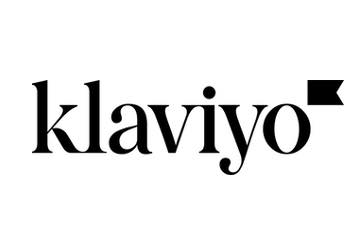Klaviyo, the email and SMS marketing platform, filed on August 25 its form S-1 with the U.S. Securities and Exchange Commission, declaring its intention to sell public shares. The S-1 stated that proceeds would go to existing investors and for general business expansion. It didn’t provide details of either, although the company is mainly venture capital funded and thus a prime public candidate.
The S-1 included no specifics of shares offered, price, or timing. But Reuters reported in May that Klaviyo had “confidentially submitted paperwork” to regulators, aiming to raise at least $750 million. The company was valued at $9.5 billion in a 2021 funding round. A $750 million IPO would be relatively modest, certainly a minority of outstanding shares.
Per the S-1, Klaviyo had approximately 130,000 customers as of June 30, 2023, up from about 105,000 a year earlier. Revenue for the 12 months ended June 30 was $585.1 million, a 56% year-over-year increase.
Virtually all of Klaviyo’s customers are ecommerce sellers. Roughly 77% of 2022 revenue came from Shopify merchants. Shopify is also an 11% owner. Other Klaviyo customers use BigCommerce, WooCommerce, Magento, PrestaShop, or Salesforce Commerce Cloud — all have integrations with the company.
Klaviyo mentions the word “data” some 435 times in the S-1. That is not surprising given the company’s history.
In a Practical Ecommerce podcast episode last year, Klayivo co-founder Andrew Bialecki stated, “We started Klaviyo in 2012. We began as a database company — a way to do segmentation for other software businesses. We fell into ecommerce and retail.”
Bialecki’s data expertise fueled the company. Klaviyo collected data from ecommerce platforms in a manner not seen before. Shoppers’ actions on, say, a Shopify site could spur a blizzard of automated emails on Klaviyo, all highly targeted, personalized, and crazy effective.
Fast forward to 2023, and harvesting and retaining that first-party shopper data is increasingly vital to merchants, with the rise of privacy rules and laws.
Klaviyo is poised to capitalize, stating in the S-1, “Our customer data store was designed to consolidate customers’ first-party data at scale, synchronizing and unifying data from over 300 integrations seamlessly into a single system-of-record.”
The more integrations and forms of data collection Klaviyo adds, the better the data profile theoretically becomes, offering better personalization and engagement.
Expect Klaviyo to use funds from its IPO to invest in ways to improve first-party data aggregation, make its use relatively less complex, and provide a comprehensive view of customer information.
This could include reviews and the launch of a customer data platform, software that aggregates and organizes customer data across different sources to create a unified customer profile. Businesses use this data for marketing, sales, and customer service functions.
Klaviyo already offers sophisticated predictive analysis via artificial intelligence, but expect more with post-IPO funding.
A final result could be higher prices to customers. The company states that it hopes to increase the revenue it earns from existing customers by expanding the amount of data customers store — and are charged for — and upselling them. Those upsells will likely include the rich data and predictive AI solutions mentioned above.
A customer data platform that helps ecommerce companies produce consistent and predictable revenue is also likely to be very sticky, meaning that online sellers could become dependent on Klaviyo. Thus Klaviyo could raise prices without too much pushback as long as it plays an essential role in revenue.
Copyright © 2005 – 2023.
Practical Ecommerce® is a
registered trademark of
Confluence Distribution, Inc.
Klaviyo IPO Fueled by Data, Shopify Collab – Practical Ecommerce

